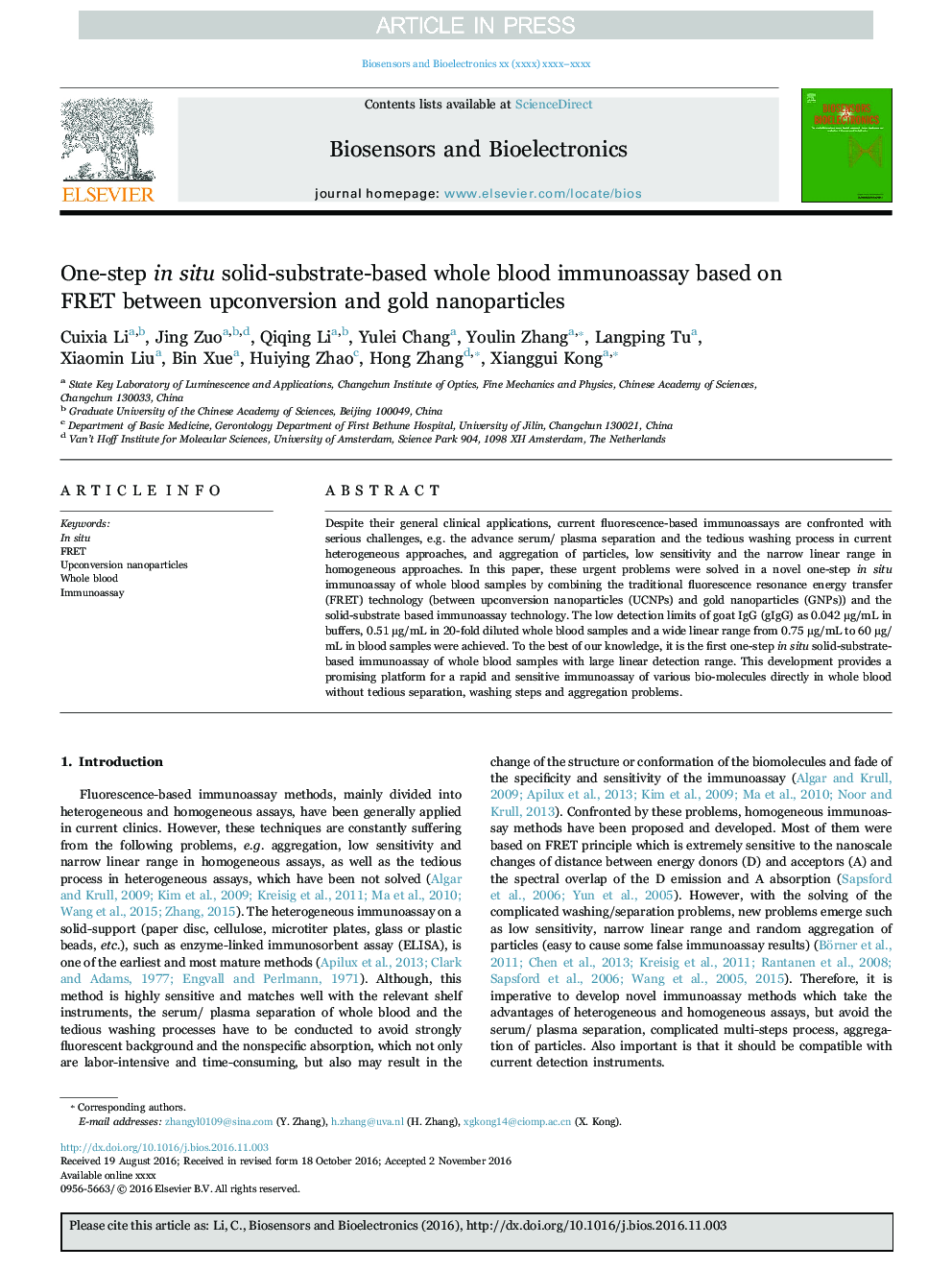| Article ID | Journal | Published Year | Pages | File Type |
|---|---|---|---|---|
| 5031611 | Biosensors and Bioelectronics | 2017 | 7 Pages |
Abstract
Despite their general clinical applications, current fluorescence-based immunoassays are confronted with serious challenges, e.g. the advance serum/ plasma separation and the tedious washing process in current heterogeneous approaches, and aggregation of particles, low sensitivity and the narrow linear range in homogeneous approaches. In this paper, these urgent problems were solved in a novel one-step in situ immunoassay of whole blood samples by combining the traditional fluorescence resonance energy transfer (FRET) technology (between upconversion nanoparticles (UCNPs) and gold nanoparticles (GNPs)) and the solid-substrate based immunoassay technology. The low detection limits of goat IgG (gIgG) as 0.042 μg/mL in buffers, 0.51 μg/mL in 20-fold diluted whole blood samples and a wide linear range from 0.75 μg/mL to 60 μg/mL in blood samples were achieved. To the best of our knowledge, it is the first one-step in situ solid-substrate-based immunoassay of whole blood samples with large linear detection range. This development provides a promising platform for a rapid and sensitive immunoassay of various bio-molecules directly in whole blood without tedious separation, washing steps and aggregation problems.
Related Topics
Physical Sciences and Engineering
Chemistry
Analytical Chemistry
Authors
Cuixia Li, Jing Zuo, Qiqing Li, Yulei Chang, Youlin Zhang, Langping Tu, Xiaomin Liu, Bin Xue, Huiying Zhao, Hong Zhang, Xianggui Kong,
